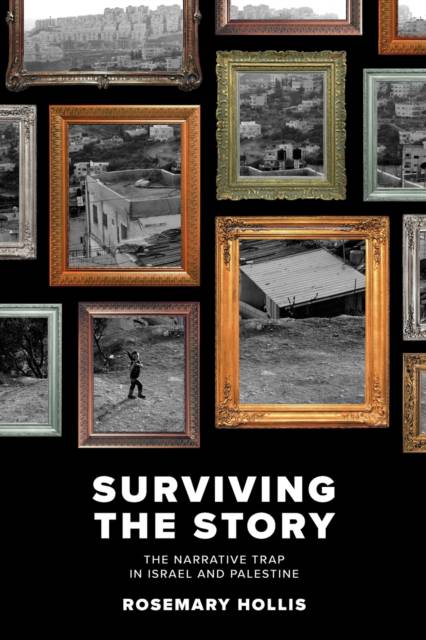
- Afhalen na 1 uur in een winkel met voorraad
- Gratis thuislevering in België
- Ruim aanbod met 7 miljoen producten
- Afhalen na 1 uur in een winkel met voorraad
- Gratis thuislevering in België
- Ruim aanbod met 7 miljoen producten
Omschrijving
All of us derive our identities from the stories we tell ourselves (and our children) about who we are and who we are not; our triumphs and our tragedies, the heroes we honour and the villains we denounce. We find meaning and inspiration in these narratives, but they can also trap us into dualistic thinking about 'self' and 'other'. The very realisation of an option - to escape the narrative trap - is to approach freedom from manipulation.
In Surviving the Story, political scientist Rosemary Hollis examines the role of group and national narratives in driving conflict. Her study is based on a unique survey conducted with Israeli and Palestinian university graduates who enrolled on the Olive Tree programme at City, University of London, between 2004 and 2016.
Dr Hollis's findings pose important questions for those involved in conflict and its mediation. For protagonists, dialogue with the enemy can alert them to the role of narratives in driving them and the conflict. For what Dr Hollis calls 'the peace business', there are valuable insights and cautionary tales.
For the non-specialist reader baffled today by an almost daily diet of competing narratives, this work offers hope. Rather than fall prey to dualistic thinking about political and national identity, the reader is invited to forego polarised, tribal positions and discern alternative ways of being.
Specificaties
Betrokkenen
- Auteur(s):
- Uitgeverij:
Inhoud
- Aantal bladzijden:
- 208
- Taal:
- Engels
Eigenschappen
- Productcode (EAN):
- 9781916084315
- Verschijningsdatum:
- 15/10/2019
- Uitvoering:
- Paperback
- Formaat:
- Trade paperback (VS)
- Afmetingen:
- 152 mm x 229 mm
- Gewicht:
- 312 g

Alleen bij Standaard Boekhandel
Beoordelingen
We publiceren alleen reviews die voldoen aan de voorwaarden voor reviews. Bekijk onze voorwaarden voor reviews.












